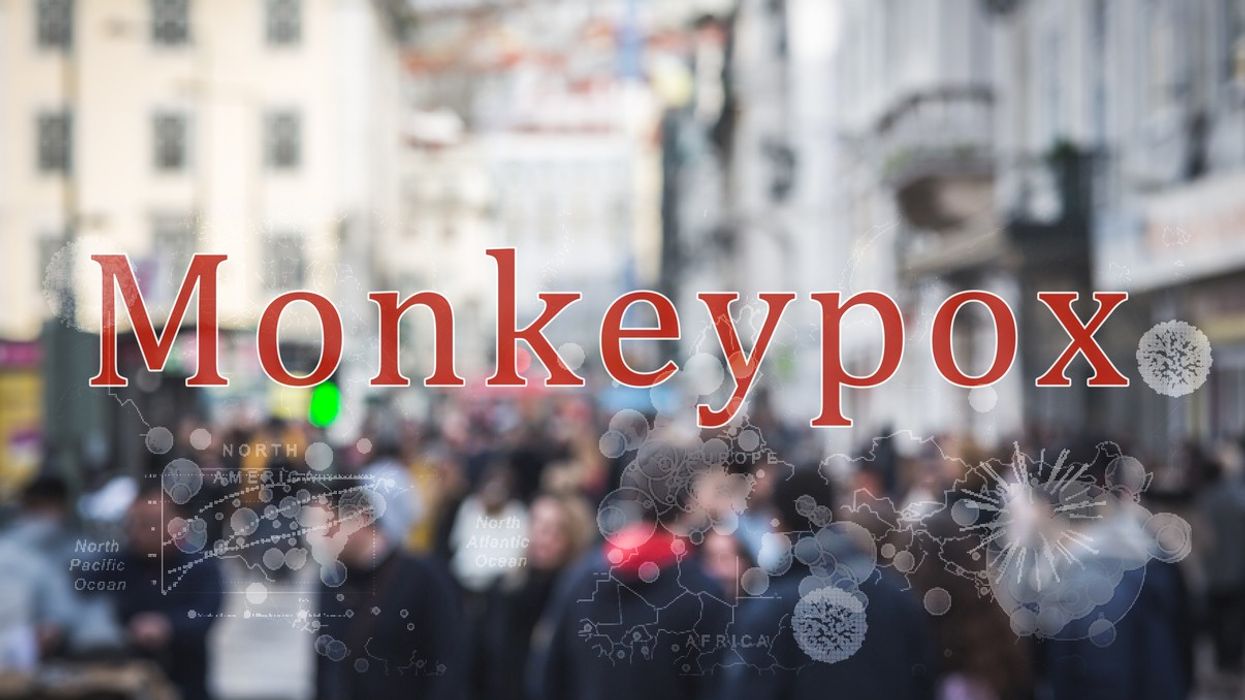The WHO (World Health Organisation) called a new expert meeting for July 21 to decide whether to declare a global health emergency. On Saturday, WHO chief Tedros Adhanom Ghebreyesus announced the monkeypox outbreak to be a "public health emergency of international concern".
The WHO said that so far 14,533 probable and laboratory-confirmed cases (including 3 deaths in Nigeria and 2 in the Central African Republic) have been reported to WHO from 72 countries Here's what is known about monkeypox:
Q. What is monkeypox?
A. Monkeypox is a viral zoonosis (a virus transmitted to humans from animals) with symptoms similar to those seen in the past in smallpox patients, although it is clinically less severeThere are two distinct genetic clades of the monkeypox virus - the Central African (Congo Basin) clade and West African. The Congo Basin clade has historically caused more severe disease and is thought to be more transmissibleQ: What are the symptoms and what is the recovery period?A: Monkeypox is usually a self-limited disease with the symptoms lasting two to four weeks. The case fatality ratio has historically ranged from zero to 11 per cent in the general population and has been higher among young children. In recent times, the case fatality ratio has been around three to six per centMonkeypox typically presents itself with fever, headache, rashes for up to three weeks, sore throat, cough and swollen lymph nodes
The symptoms include lesions, which usually begin within one to three days of the onset of fever, last for around two to four weeks, and are often described as painful until the healing phase when they turn itchy (in the crust stage)
A notable predilection for palm and soles is a characteristic of monkeypox
Q. How does it spread?
A. Human-to-human transmission occurs primarily through large respiratory droplets generally requiring prolonged close contact. It can also be transmitted through direct contact with body fluids or lesion material, and indirect contact with lesion material, such as through contaminated clothing or linens of an infected personanimal-to-human transmission may occur by bite or scratches of infected animals like small mammals, including rodents (rats, squirrels) and non-human primates (monkeys, apes) or through bush meat preparation
Q: What is the incubation period and the period of communicability?
A: The incubation period (interval from infection to onset of symptoms) is usually six to 13 days but can range from five to 21 days. The period of communicability is one to two days before the rash until all the scabs fall off or get subsideQ: Is monkeypox sexually transmitted?
A: Tedros Adhanom Ghebreyesus, Director General of the World Health Organisation, while declaring monkeypox a public health emergency of international concern, said, "For the moment, this is an outbreak that's concentrated among men who have sex with men, especially those with multiple sexual partners. This is an outbreak that can be stopped with the right strategies in the right groups."
Research published in the New England Journal of Medicine last Thursday, which looked at 528 confirmed infections, showed that 95 per cent of cases were transmitted through sexual activity and that 98 per cent of those infected were gay or bisexual men
Q: Is monkeypox a new disease?
A: No. Human monkeypox was first identified in 1970 in the Democratic Republic of the Congo. Since then, most cases have been reported from rural, rainforest regions of the Congo Basin, particularly in the Democratic Republic of the Congo and human cases have increasingly been reported from across central and west Africa
Since 1970, human cases of monkeypox have been reported in 11 African countries. In 2003, the first monkeypox outbreak outside Africa was in the US. This outbreak led to over 70 cases of monkeypox in America
Monkeypox has also been reported in travellers from Nigeria to Israel and the United Kingdom in September 2018, December 2019, May 2021 and May 2022, to Singapore in May 2019, and to the US in November 2021
In May this year, multiple cases of monkeypox were identified in several non-endemic countries. Globally, over 16,000 cases of monkeypox have now been reported from 75 countries and there have been five deaths so far due to the outbreak.
(PTI)




